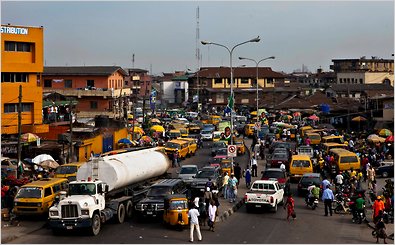For Nigeria to move out of underdevelopment and achieve prosperity and economic growth, the concept of free market must be a core factor in its economic policies.
This was the view of the African Liberty Organisation, Network for Free Society and Atlas Economic Research Foundation, a United States-based global network, as contained in a book presented recently in Lagos.
The 129-page book titled, ‘Free Markets and Justice,’ whose forward was written by the former Minister of Solid Minerals and World Bank Vice-President for Africa, Mrs. Obiageli Ezekwesili, was presented at the ALO office.
According to Ezekwesili, a World Bank research carried out in over 100 countries over the last 30 years showed that economic freedom, civil and political liberties are the core reasons why some countries achieved and sustained better economic outcomes, while others do not.
She said freedom to produce, trade or consume goods or services that one acquired without the use of force, fraud or theft was one of the characteristics seen in African countries that achieved prosperity in recent times.
Ezekwesili wrote, “The freedom from regulation or other dictates from government or the authorities in economic matters make the capitalist system of economic freedom a means for efficient allocation of resources.
“Economic freedom helps countries to produce the right leadership and good governance. It helps to achieve inclusive growth and above all, economic freedom helps citizens remain at the centre of every economic activity.”
In his address, the publisher of the book and Director of Outreach, ALO, Mr. Adedayo Thomas, said socialists often criticised the concepts of capitalism and free market as amoral economic systems because of the magnitude of prosperity individuals could achieve with their ability.
“Far from being an amoral ideology, capitalism is highly structured by ethical norms and rules, which reject looting and grabbing of wealth common in socialism and communism,” Thomas said.
According to him, most African countries, including Nigeria, practice crony capitalism, which is why there has not been any meaningful development on the continent.
“In Nigeria today, if you know the President or governors, you will be given concession to manage any privatised government enterprise even if you are not competent; this is not capitalism, rather it is this kind of crony or phoney capitalism that is putting capitalism in bad light,” he said.
Thomas said the book, which is divided into four sections and has 13 chapters, contained workable solutions that could catapult many underdeveloped African nations from the realm of the third world into first world nations.
This was initially published in the Punch Newspapers as reported by OKECHUKWU NNODIM
[Photo: Punch Newspapers]

